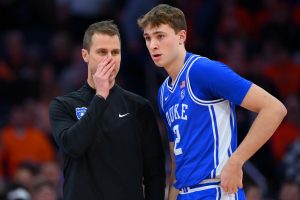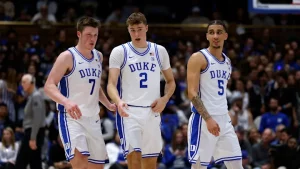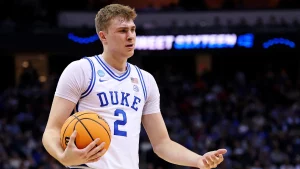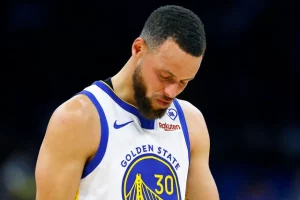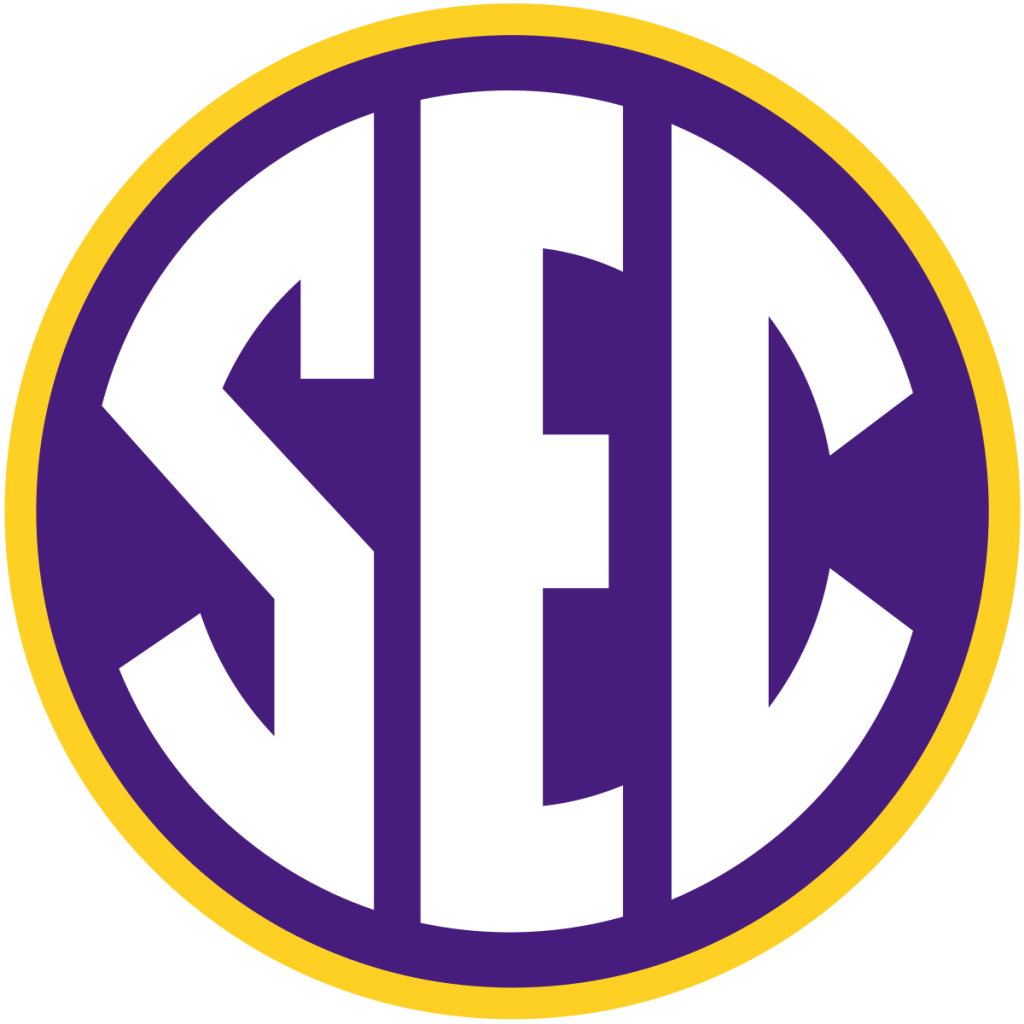
The LSU Tigers were one of the original 13 members of the SEC when it was formed in 1933. Prior to the SEC’s formation, LSU competed in the Southern Conference, but the desire for a more regional, balanced league pushed the school to join what would become college football’s most dominant conference.
Led by head coach Biff Jones in the 1930s, LSU established itself quickly as a contender. The 1936 Tigers went 9-1-1 and were named national champions by the Williamson System, a major selector at the time. This early success laid the groundwork for a program that would become known for stout defenses, physical football, and a loyal fanbase.
One of the most transformative chapters in LSU history came under head coach Paul Dietzel. In 1958, the Tigers captured their first consensus national championship after going 11-0, capped by a Sugar Bowl win over Clemson. The team was led by the famous three-platoon system—White Team (starters), Go Team (offense), and Chinese Bandits (defense).
That 1958 team was gritty, disciplined, and fearsome. Dietzel’s innovative approach won him national acclaim, and the Tigers became the pride of the SEC. Though Dietzel left for Army shortly afterward, his legacy remains foundational in LSU lore.
Charles “Cholly Mac” McClendon is the longest-tenured coach in LSU history, guiding the program from 1962 to 1979. While LSU never won a national title under McClendon, his teams were incredibly consistent, with nine bowl appearances and 137 wins—still a school record.
During the late 1960s and early 1970s, McClendon’s Tigers were perennial contenders in the SEC. Unfortunately, this was also a period of dominance by Bear Bryant’s Alabama squads, which often edged LSU out for the top spot in the West.
McClendon’s teams reflected LSU’s culture: rugged, loyal, and always competitive. He was beloved by players and fans alike, even though his era lacked championship hardware.
The 1980s began with promise under coach Jerry Stovall, but inconsistency plagued the Tigers. Arnsparger, Archer, and Hallman all had turns at trying to resurrect LSU’s prominence in the SEC but failed to deliver significant results.
The 1988 team, under Mike Archer, won the SEC title but did not receive a major bowl invite due to a flawed system. In 1993, the Tigers hit rock bottom with a 5-6 record, culminating in one of the darkest decades in LSU football history.
Still, the passion of the LSU fanbase never wavered. Tiger Stadium—Death Valley—remained one of the most intimidating places to play. Even during lean years, the crowd energy was unmatched.
Everything changed when LSU hired Nick Saban from Michigan State in 2000. Saban brought a no-nonsense, detail-oriented approach that reshaped the culture. In just four seasons, he took LSU from mediocrity to the mountaintop.
In 2003, LSU went 13-1 and captured the BCS National Championship with a dominant win over Oklahoma in the Sugar Bowl. It was LSU’s first undisputed title since 1958, and it reasserted the Tigers as a national powerhouse.
Saban’s tenure also included the 2001 SEC title and an influx of NFL talent, proving LSU could recruit, develop, and win at the highest level. When he left for the NFL in 2004, LSU was once again a feared program nationally.
Les Miles inherited a loaded roster and managed to keep the momentum going—and then some. Known as “The Mad Hatter” for his gutsy play-calling and quirky personality, Miles became a fixture in Baton Rouge.
His signature moment came in 2007, when LSU survived a brutal SEC schedule to win the national title, becoming the first two-loss team in modern history to do so. The Tigers beat Ohio State 38-24 in the BCS Championship Game, again in New Orleans, confirming the city’s magical connection to LSU football.
Miles also won the SEC Championship in 2011 and led LSU to another national title game appearance, though the Tigers fell to Alabama in a controversial rematch. Despite ups and downs, Miles won 114 games at LSU and recruited elite talent, including stars like Patrick Peterson, Tyrann Mathieu, and Odell Beckham Jr.
After Miles was fired midseason in 2016, interim coach Ed Orgeron took over. Initially a surprise hire for the full-time job, Coach O quickly silenced critics with his emotional leadership and connection to Louisiana culture.
Everything came together in 2019, when LSU delivered what many consider the greatest season in college football history. Led by Heisman Trophy winner Joe Burrow, LSU went 15-0, beat seven top-10 teams, and dominated the College Football Playoff, including a 42-25 win over Clemson for the national title.
The 2019 team rewrote record books, producing a historically explosive offense coordinated by Joe Brady. LSU had two 1,000-yard receivers (Ja’Marr Chase and Justin Jefferson), a 1,000-yard rusher (Clyde Edwards-Helaire), and one of the best QB seasons ever from Burrow.
Coach O’s “Geaux Tigers” became a national catchphrase, and LSU was again the pride of the SEC.
After the 2019 high, LSU struggled to maintain consistency. COVID-19, roster turnover, and off-field distractions led to disappointing seasons in 2020 and 2021. Ed Orgeron was let go after the 2021 season despite his past success.
In a bold move, LSU hired Brian Kelly from Notre Dame in 2022. Kelly, known for discipline and sustained success, aimed to modernize the program and return it to championship contention.
In his first season, Kelly exceeded expectations. The Tigers beat Alabama, won the SEC West, and finished 10-4. With top-tier recruiting, a revitalized roster, and an emphasis on player development, Kelly appears to be building something sustainable in Baton Rouge.
Under his guidance, LSU is once again a top-tier SEC contender, and the Tigers are gunning for another national title in the expanding 12-team playoff era.
LSU vs. Alabama
This rivalry has taken center stage in recent years, especially during the Saban era. Though Alabama has dominated the series lately, LSU’s 2019 win in Tuscaloosa was one of the most iconic victories in school history.
LSU vs. Florida
Known for wild finishes and emotional intensity, the LSU–Florida rivalry became an annual clash of SEC titans. From the “Earthquake Game” to goal-line stands and Hurricane-driven scheduling conflicts, it’s one of the SEC’s most entertaining matchups.
LSU vs. Ole Miss
This is one of LSU’s oldest rivalries, dating back to 1894. While not always national in relevance, it’s a deeply rooted contest steeped in Southern football history.
No history of LSU in the SEC is complete without honoring Tiger Stadium, also known as Death Valley. Opened in 1924, it has grown to hold over 100,000 fans and is often called the loudest stadium in college football. Legendary broadcaster Brent Musburger once said, “There’s nothing like a Saturday night in Death Valley.”
From Billy Cannon’s 1959 Halloween punt return to Burrow’s dominance in 2019, Death Valley is where legends are made and dreams are shattered.
Legacy and Impact in the SEC
-
National Championships: 1958, 2003, 2007, 2019
-
SEC Championships: 12 (latest in 2019)
-
Heisman Winners: Billy Cannon (1959), Joe Burrow (2019)
-
NFL Pipeline: LSU has sent hundreds of players to the NFL, including stars like Leonard Fournette, Tyrann Mathieu, Justin Jefferson, and Joe Burrow.
LSU’s SEC legacy is defined by championship peaks, iconic players, and a fanbase that lives and breathes purple and gold. From the Chinese Bandits to Joe Burrow’s fireworks, LSU has continually evolved but never lost its identity as one of the fiercest competitors in the SEC.
The LSU Tigers have carved out one of the most compelling stories in SEC history—a story of resilience, reinvention, and roaring crowds under the lights in Baton Rouge.
